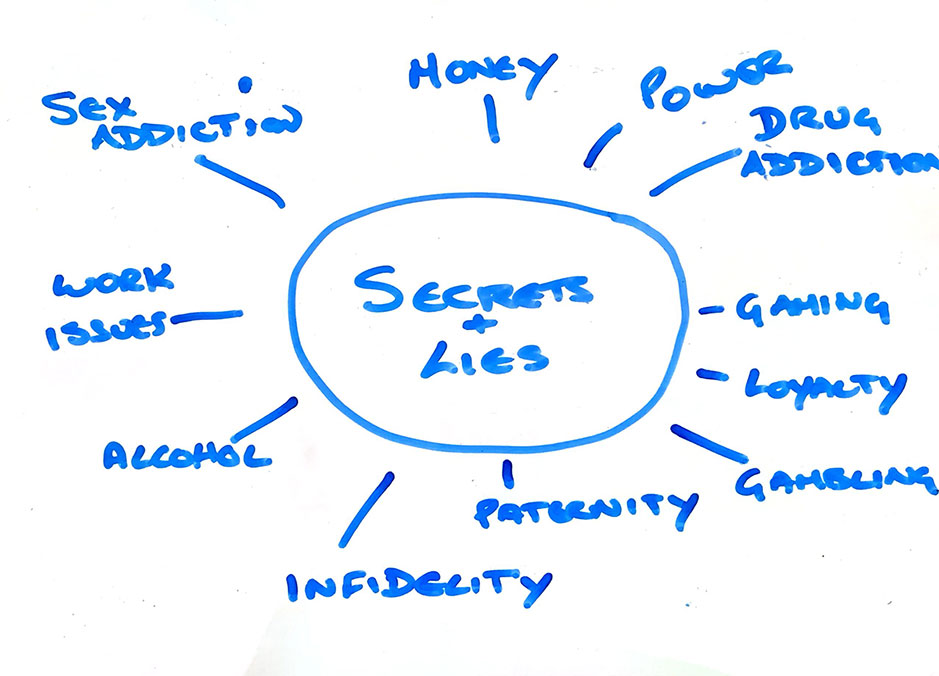Secrets and Lies!
All families have secrets, and most people lie, honesty seems to be in short supply in a time when people use words like alternative truths, the only alternative to truth is a lie. We have people creating artificial images of themselves on social media, beaming into the camera clasping their partner whom they have just told their best friend they hate. We are very lost as a society. Secrets and lies harm the whole of our community, but also those small units within, our families. If there are secrets or lies, we cannot deal with the associated problems that arise from them. Children and adults alike know when they are being lied to, or they have a sense that something is being withheld, our unconscious is on guard scenting out trouble and it will know.
There was an interesting experiment about lying to children that is detailed in Dr. Anne Lembke’s book Dopamine Nation. She tells of an experiment whereby children are told that they can have a marshmallow now, or they can have two if they wait fifteen minutes. Then they factor in an adult lying to them, saying they will be back in a minute and then they do not return when they say they will. The fascinating result of this experiment is that those children that were lied to were less likely to wait the 15 minutes to have the extra marshmallow. It is obvious to see that their trust has been damaged, so they go for instant gratification. Follow up research showed that those who waited the fifteen minutes went on to higher academic and life achievements. This highlights the importance of being honest with children, as eroding their trust in adults will impair their development.
In my book Gene’s don’t Lie I have a chapter on secrets and lies, as anyone who has had a surprise revelation after doing a DNA test knows, there have at the very least been omissions in the story their parents gave them. When researching for the book, I discovered some research from Stanford Graduate Business School and Columbia Graduate School that evidenced how both exhausting and isolating holding a secret is, if our safety depends on holding on to that secret, then it forces us to put distance from others to help us maintain the secret. Sissela Bok’s book on lying, addresses the sense of disappointment a child feels in a parent if they discover that they have been lied to about their parentage. Secrets and lies, two unholy bedfellows!
In my day to day life the most lies I encounter are from addicts, and those of you who have lived with, worked with or known an addict, you will understand what I mean, as lying becomes second nature to an addict and often long since the addiction has moved into the past, the conditioning around lying stays. If an addict begins to tell you the truth, then this is a step on the way to recovery.
A term we often hear is that of the ‘white lie’, we see this as a good lie, a lie perhaps to protect someone, or so we tell ourselves, or something so near to the truth we think that it is ok. However, like any other lie, it will sit there brooding between you and the recipient, waiting to burst into the relationship. It is a barrier, and we cannot have healthy relationships that are littered with barriers.
If you find yourself about to tell a lie, even a white lie, ask yourself:
‘What is my purpose?’
‘Will this help or hinder my relationship with this person?’
‘If I get found out, what will it do to this relationship?’
Pause before you take the leap into a lie, because lies almost always have repercussions and secrets invariably come out in the end. If you find yourself telling ties or keeping things secret which seem pointless, you are perhaps using this to maintain some sense of power in your relationships. You might ask yourself why you need to do this, as it can erode trust.
Good relationships are built on trust. If you are compelled to lie or are secretive, seek help to unravel it, it can only improve your life.
